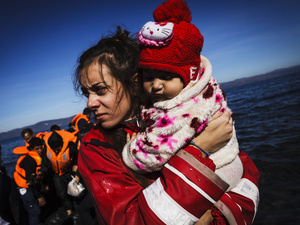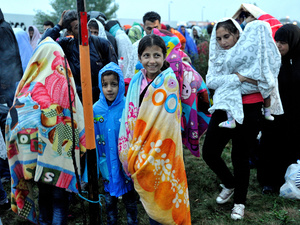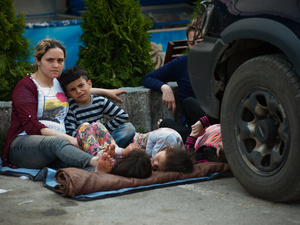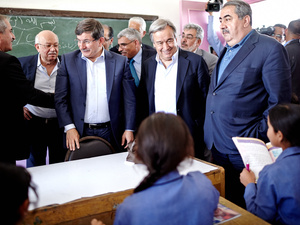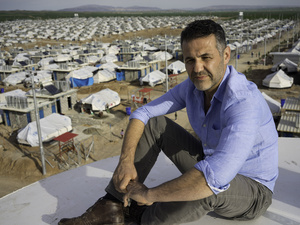UNHCR urges more international support to ease tensions at Tunisia border camp
UNHCR urges more international support to ease tensions at Tunisia border camp

Makeshift living conditions for the residents of Tunisia's Choucha camp after two-thirds of the camp was destroyed.
CHOUCHA CAMP, Tunisia, May 27 (UNHCR) - The UN refugee agency has urged donor and resettlement countries to step up assistance for thousands of refugees and migrant workers caught up in this week's disturbances at a camp near the Tunisia-Libya border.
Until recently, Choucha camp in eastern Tunisia was home to over 4,000 migrant workers and refugees - mostly Somalis, Eritreans and Sudanese - who had fled the conflict in Libya since March. On Sunday night, a fire at the camp killed four Eritreans and destroyed 20 tents. The cause is currently under investigation.
On Monday, a large group of migrant workers surrounded UNHCR's office at the camp, demanding immediate resettlement, said UNHCR spokeswoman Melissa Fleming at a press briefing in Geneva on Friday. "Our staff and other humanitarian workers received death threats and were forced to withdraw."
The demonstrators aroused the anger of the local Tunisian community when they blocked the main highway between the Ras Adjir border crossing and the rest of Tunisia. On Tuesday morning, clashes broke out between various groups in the camp, killing at least two people. The situation was exacerbated when some 500 locals joined in the violence. More tents were looted and burnt and many camp residents fled into the surrounding desert. The Tunisian authorities managed to restore order by Tuesday evening.
When UNHCR led a small inter-agency team to Choucha on Wednesday morning, they found that two-thirds of the camp had been looted or destroyed. Most of the camp's residents lost most, if not all, of their belongings, and are currently staying in makeshift tents or in the open. The Tunisian army worked with UNHCR to distribute mattresses, blankets and food to them.
By Thursday morning, most of the aid agencies were able to return and resume their work at the camp.
To ease tensions, UNHCR staff have been meeting with representatives of all communities in Choucha camp and with Tunisian central and local authorities. All agreed that the immediate priorities are to ensure security at the camp and to find separate solutions for migrants and refugees.
"Tunisia has seen massive displacement across its border from Libya since February, and the resulting pressures need easing," said UNHCR's Fleming. "We are again calling on donor and resettlement countries to contribute additional help for the humanitarian evacuation programme carried out by IOM (the International Organization for Migration), and to offer additional resettlement slots for refugees."
To date, the UN refugee agency has received just over $48 million out of the $80 million it needs to respond to the emergency in Tunisia between March and August this year.
By Firas Kayal at Choucha camp, Tunisia, and Andrej Mahecic in Geneva



